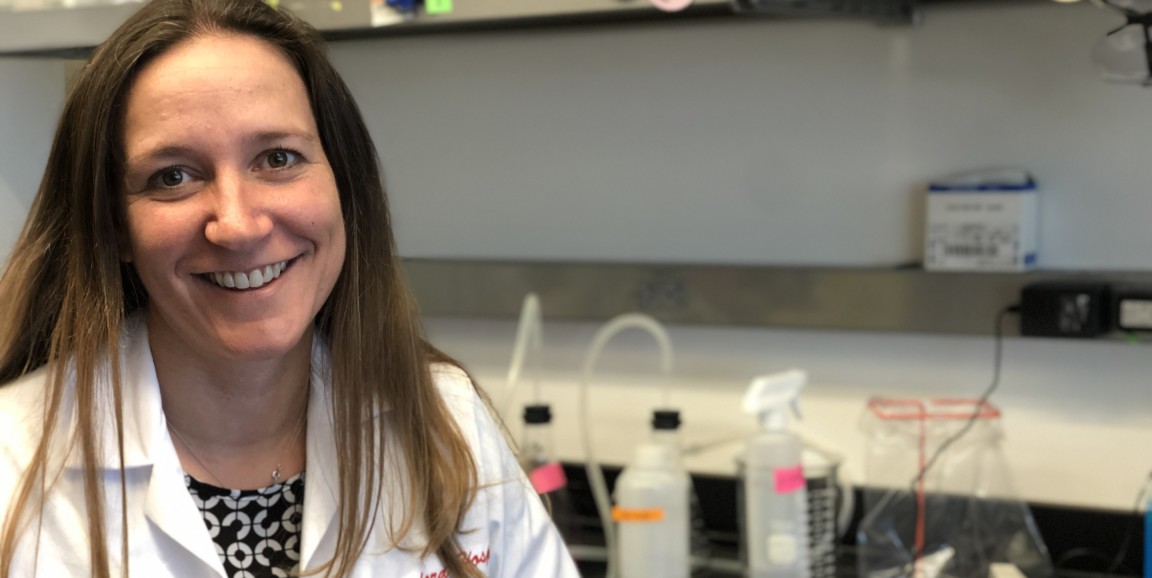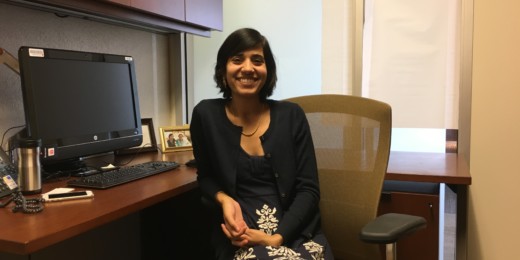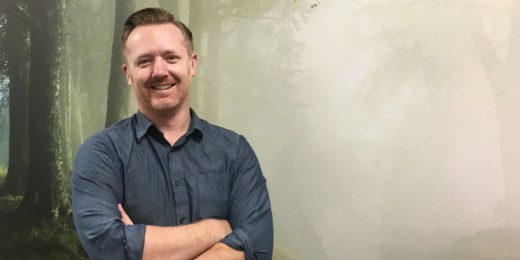I first saw Rebecca Saenz, MD, PhD, at the school of medicine's second annual Diversity & Inclusion Forum, presenting on mentorship. It turns out that's just one of the many passions she's been following at Stanford. I caught up with her just before she graduates this month from a clinical fellowship in allergy and immunology.
I grew up in Los Altos, which is the next town south of here. I was actually born at Stanford Hospital.
My dad worked in engineering, and I eventually followed his lead and pursued engineering in college. Meanwhile, my mom worked at Stanford Hospital for 40 years as a nurse in the NICU and later in the Packard Intermediate Care Nursery. I went in sometimes to visit her at work and the tiny NICU babies made me consider a career in medicine from a pretty early age.
It took me years to realize I could pursue engineering and medicine together.
Five years. After finishing my MD/PhD at the University of California, San Diego, I moved up here for the Stanford pediatrics residency. I liked it here and wanted to stay on for fellowship.
Next month, I will be participating in the Stanford Ignite program at the Graduate School of Business for individuals that are interested in innovative ventures. I have lots of start-up ideas, but I haven't been able to take any of them to market yet. Long-term, I'm staying on as a part-time clinical instructor in Stanford's Division of Allergy, Immunology and Rheumatology, while also taking a full-time job as an assistant medical director at Genentech.
With a great group of engineering graduate students and an MBA student, we are developing an intraoral device to treat overnight symptoms of dry mouth.
The prevalence of dry mouth is really quite significant. Up to a third of the U.S. adult population can suffer from dry mouth, and in the more moderate to severe cases, it can be common to have depression and sleep disruption.
Before medical school, I worked at a startup that was working on a customized cancer vaccine for patients with non-Hodgkin's lymphoma. That's where I really found a passion for vaccines and immunology.
Eventually I discovered the two main medical training options for someone interested in vaccine immunology are either hematology/oncology or allergy and immunology. I have two kids, and it was honestly easier to imagine my life as an allergist than working in an oncology ward.
I have two daughters, 2 and 8. My older daughter was born when I was just finishing my PhD and my younger one was born in my last months of pediatrics residency. Luckily, I have a very supportive family. My husband is amazing and I get lots of help from my parents, especially my mom.
I'm up at 6:30, and then usually it's back and forth between the girls' rooms and the kitchen and trying to make sure that they're dressed and fed and ready to get out the door.
Then I come to Stanford. After a full day in clinic or working in lab, I have been staying late two nights a week to take classes as part of the Stanford Byers Center for Biodesign graduate innovation course. So, I'm often not getting home until 7 when the girls have often already been fed dinner by my husband or my mom.
In the evening, I usually dedicate an hour or two to the girls: playing with them, reading books, and getting them in bed. After they're in bed, I'll either write clinical notes or I'll work out. I started running again in November and I ran my first half marathon in March. If it's dark, I'll either run on the treadmill or put a headlamp on and go run outside.
A mentor of mine recently used the hashtag #lifeboss to describe me, and that hashtag has become my inspiration to keep pushing me with all my projects. When there are kids to take care of, a full-time job to do, plus I'm interested in starting a company, you just write out a "to-do" list and you start checking things off.
Think about the big goals and dreams. Don't limit your thinking to just attending medical school or just getting through a residency program. We have a whole life and career beyond our training, and there is time to accomplish great things. We need big dreams to do that.
On the personal side, having kids and/or personal hobbies while in training may ultimately make you a better doctor or scientist. So, my advice is don't put your life on hold while you're in training!
Photo by Daphne Sashin






